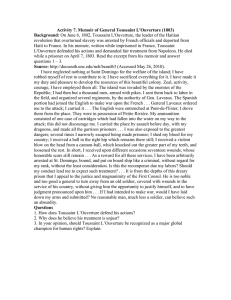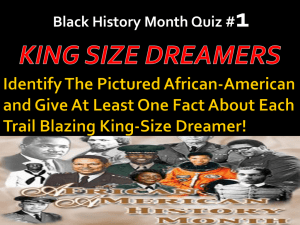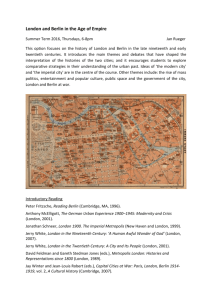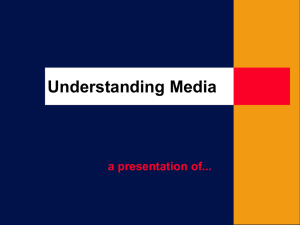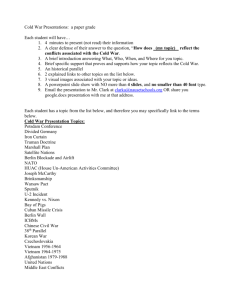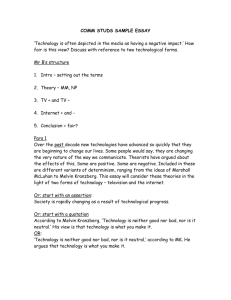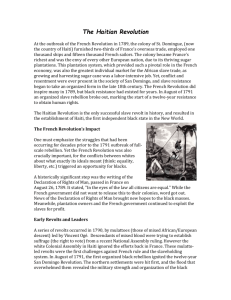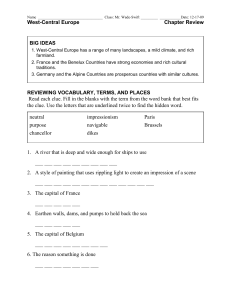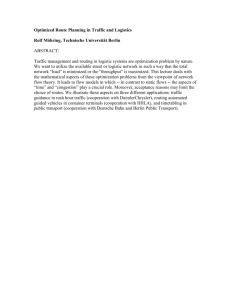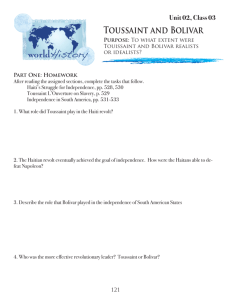Describe and give the significance of
advertisement
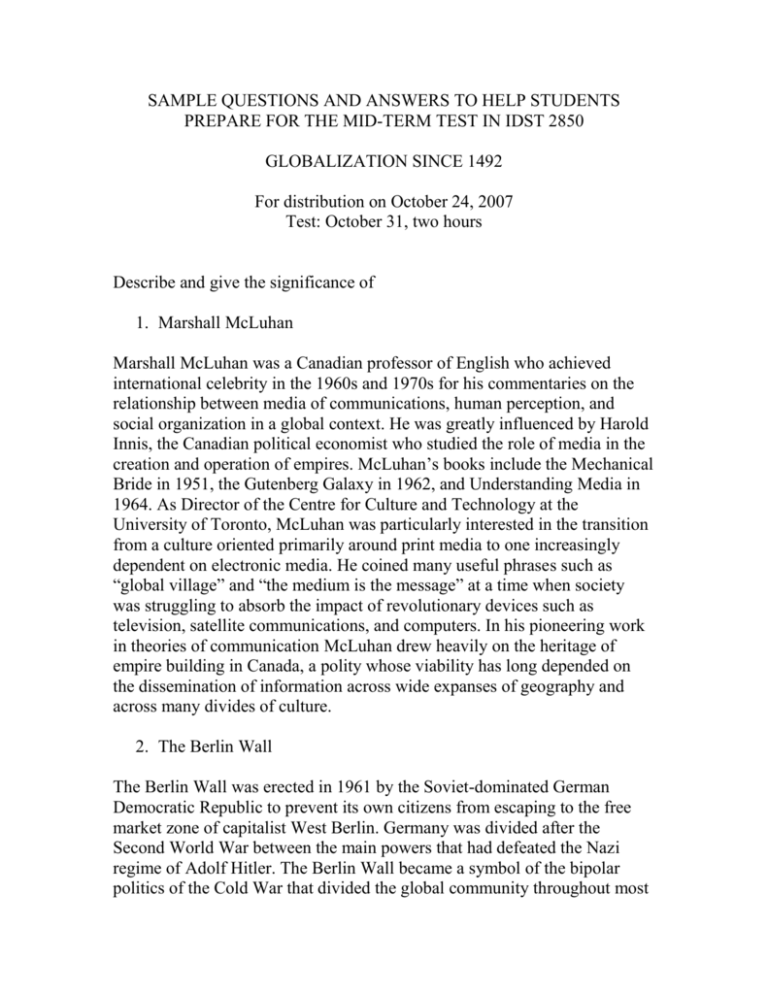
SAMPLE QUESTIONS AND ANSWERS TO HELP STUDENTS PREPARE FOR THE MID-TERM TEST IN IDST 2850 GLOBALIZATION SINCE 1492 For distribution on October 24, 2007 Test: October 31, two hours Describe and give the significance of 1. Marshall McLuhan Marshall McLuhan was a Canadian professor of English who achieved international celebrity in the 1960s and 1970s for his commentaries on the relationship between media of communications, human perception, and social organization in a global context. He was greatly influenced by Harold Innis, the Canadian political economist who studied the role of media in the creation and operation of empires. McLuhan’s books include the Mechanical Bride in 1951, the Gutenberg Galaxy in 1962, and Understanding Media in 1964. As Director of the Centre for Culture and Technology at the University of Toronto, McLuhan was particularly interested in the transition from a culture oriented primarily around print media to one increasingly dependent on electronic media. He coined many useful phrases such as “global village” and “the medium is the message” at a time when society was struggling to absorb the impact of revolutionary devices such as television, satellite communications, and computers. In his pioneering work in theories of communication McLuhan drew heavily on the heritage of empire building in Canada, a polity whose viability has long depended on the dissemination of information across wide expanses of geography and across many divides of culture. 2. The Berlin Wall The Berlin Wall was erected in 1961 by the Soviet-dominated German Democratic Republic to prevent its own citizens from escaping to the free market zone of capitalist West Berlin. Germany was divided after the Second World War between the main powers that had defeated the Nazi regime of Adolf Hitler. The Berlin Wall became a symbol of the bipolar politics of the Cold War that divided the global community throughout most of the second half of the twentieth century. In the Cold War the United States dominated a sphere of capitalist polities whereas the Soviet Union stood at the centre of a number of competing polities whose governments espoused Marxist principles of proletarian internationalism. In 1989 a surge of popular resistance in Eastern Europe against the continuing reign of communist authoritarianism led to fall of the Berlin Wall and the reunification of Germany. The fall of the Berlin Wall proved to be a prelude to the demise of the Soviet Union two years later. The raising, maintenance and demolition of the Berlin Wall has symbolized patterns of history whose global sweep transcends the local politics of a single city. 3. Pierre Dominique Toussaint L’Overature Pierre Dominique Toussaint L-Overature was a gifted military leader and law giver who transformed a slave revolt in the French sugar colony of San Domingo into a revolutionary movement resulting in the creation of the Republic of Haiti in 1803. The slave revolt in France’s most lucrative colony began in 1791 when news of the French Revolution and the Declaration of the Rights of Man began to reach the Caribbean Islands. The Black slaves of African ancestry at San Domingo believed that the ideals of liberty, equality and fraternity applied to them as much as to any White European. Toussaint L-Overature was drawn to this liberation stuggle giving it military discipline and constitutional articulation. Eventually the Black leader was captured by the forces of Napoleon Bonaparte, the General who sought to reinstitute Black slavery in France’s sugar islands. Toussaint L’Overature died of exposure in a jail in the French Alps in 1802. Nevertheless the movement he led was sufficiently effective to create Haiti, the second republic of the Americas. The leadership of Toussaint L’Overature in guiding his people away from slavery helped inspire many engaged in the struggle to oppose imperialism and oppression of all kinds. In 1938 the Trinidadian activist C.L. R. James helped explain Toussaint L’Overature’s accomplishments in his classic text, The Black Jacobins: Toussaint L’Overature and the San Domingo Revolution. 2 Other terms that may be the subject of similar short essays The Atlantic Charter Polisario “Africans? Claims in South Africa” The response of the African National Congress in 1943 to the Atlantic Charter of 1941 Nike The Shock Doctrine: The Rise of Disaster Capitalism Steve Biko Vasco Da Gama “The Librarian of Basra” Caste and Class in the governance of British imperial India 3 The United Nations Declaration on the Rights of Indigenous Peoples, 2007 Ja-hi-lee-ya Nelson Mandela and his ideal of a deracialized economy Mecca and Islam Global apartheid Henry Ford and Adolf Hitler The Model-T Ford and the Volkswagon Patrice Lumumba The military-industrial complex “merciless Indian savages” and the Declaration of Independence Dr. Mohamed Elmasry 4 Canada’s policy of multiculturalism, 1971 Omar Khadr The apparent bending of time and space through innovations in communications technology 5
